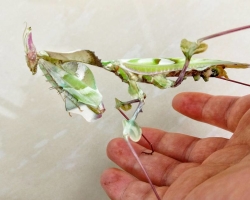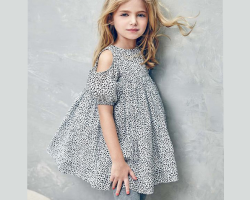The study of cases and their differences.
Content
- Changing nouns by cases: what is it called?
- Feases of nouns in the Russian language: a table with questions, prepositions and auxiliary words in the singular
- Incorrect use of cases: What is the type of error?
- How to distinguish a nominative case from a vinative?
- How to distinguish an accusative case from the genitive case?
- Uncontamed nouns: List
- Declining nouns on cases: Example
- How to quickly learn cases and their questions?
- Pester about cases: Ivan gave birth to a girl, ordered to drag a diaper
- Video: How easy it is to learn cases? Simple memorization technique
The Russian language is considered one of the most complex languages \u200b\u200bof the world. Of course, it is difficult for anyone to teach non -native vocabulary. But, it is precisely because of the transformation of words by cases that the Slavic dialect becomes too difficult for understanding. And many carriers of their native adverb are often confused in this matter, so we will try to figure it out further.
Changing nouns by cases: what is it called?
Changing nouns by cases -called declension.
Declension - This is our transformation of words on the ending. And it is necessary so that the words are properly fastened with each other. This way the statements in the Russian vocabulary are obtained.
Noun - This is the component of the phrase that implies the subject. Both alive and inanimate. Therefore, gives answers to the questions: who? So what?
Covers very extensive concepts:
- the name of objects (chair, knife, book)
- designation of persons (woman, baby, vegetarian)
- the name of living creatures (dolphin, cat, amoeba)
- the name of the substances (coffee, gelatin, starch)
- terms of various factors and cases (Fire, Anti -Tract, Correspondence)
- designation of all stay, actions and properties (tearfulness, optimism, running)
There are six different cases:
- nominative
- genitive
- dative
- accusative
- instrumental
- prepositional
Feases of nouns in the Russian language: a table with questions, prepositions and auxiliary words in the singular
For the perception and the fastest assimilation of information, the tables are often launched. They are perfectly shown what questions are used.

- The first declension - nouns of female and male family, the ending of which - a, I
- The second declension - masculine nouns without ending and which end in a soft sign, the middle kind with the ending - o, e
- Third declension - These are feminine words, which at the end finish on a soft sign

In the plural, also, for better perception, a table is used, which differs, however, only with the ending.

Incorrect use of cases: What is the type of error?
It seems that you look at tables and examples, and everything becomes clear. And you think, what's the difficult? But in fact, it turns out that many make mistakes. Despite the fact that they know the material. And, as a rule, these are very common mistakes that require special attention.
Select 2 main errors, which are connected:
- with an incorrect definition of the declension of the noun
- with the inappropriate use of prepositions
Particular attention is required by prepositions:
- thanks to
- according to
- contrary to
- like
- contrary
- across
Important: these prepositions are involved in the dative case.
For example, maneuver according to (what?) The law. Or, thanks to (what?) Friendship with the Fedorov family.
A number of statements should also be highlighted, which often used in an erroneous case:
- In view of. The current preposition is practiced only in the genitive case. For example, in view of the excess (what?) Money.
- Such a statement as "together with" It requires a creation case, because it has the weight of a joint action. For example, play with (who?) Tribute.
- Also, a preposition "along with" He also requests a creative case. For example, along with other (what?) Things.
- But after the expression "on" The adverb requests a prepositional case. If there is a value "after something." For example, upon completion of the contract.
How to distinguish a nominative case from a vinative?

Every schoolboy faces such questions. And adults often get up on such a choice. And it is not surprising that often these aspects are confused. After all, the questions are the same and the end of inanimate words the same, but here the end of the animated nouns totally different.
How is a nominative case and the vinological case different: instructions.
- Of course, the question is posed.
Above the table there was already a memo that the nominative is guided by issues who? what?(as the main member of the sentence). And the accusative - (I see) whom? what?(secondary member of the sentence). - And there is a little trick. T.K. The word in the nominative case will be permanently the main member in the sentence, then we determine the main members of the sentence - subject and predicate.
- If our word is not the main member of the sentence, therefore, it stands in the vinide case, and will be a secondary member of the sentence.
- Another technique: put a question for the verified word in an animated form. For example: who? a parrot (subject to a nominative case) pecks what? (who?) Grain (secondary member of the sentence, accusative case).
- Also, a significant role retires to the preposition with which an independent part of speech is associated (or not). In the first version (nominative case), the noun will always use without an excuse. But in the second (accusative case), on the contrary, more often with it ( in, on, for, through and others).
- To identify the case will also contribute ending. The table above has already mentioned what the end of the case has the end.
How to distinguish an accusative case from the genitive case?

- The highest assistant is the question that needs to be asked in the mind. The genitive case, as you know, responds to questions whom or what no? But the accusative case on - i see who? I hear what?Question whom? The same in both cases.
Read the instructions below.
- Mentally replace the animated object inanimate.
- The question is suitable for an inanimate in the genitive case - what is not? But in the vinitive, an inanimate object reacts to the question what do I see, I hear?
- Example: I caught ( whom?) butterfly. We put an inanimate question. I caught ( what?) butterfly. Question what? Not suitable. So this is an accusative case.
- By the way, in The genitive case It will mean attachment Someone or something. Bought a suitcase for ( what?) trips (genitive). The nightstand is made ( of what?) from wood (genitive). Also point to a particle of something. A flower is part (what?) Plants (genitive). Or goes comparison of objects. The smartphone is better ( what?) button phone (genitive).
- It is also important that in the genitive case the verb will be with negative particle. In the shop not It was ( what?) sour cream (genitive).
- But in it has a vinological case The place is a spacious or intermediate touches. Define ( what?) the weather for tomorrow (accusative). And also, the effect goes to the object entirely. For example, I closed ( what?) the door (accusative). I drank (what?) Milk (accusative). Or will express desire and intention. I want to eat ( what?) Apple.
Uncontamed nouns: List
It seems to have considered all the nuances, and a little clarification went. But it was not there! The Russian language came up with some more traps - these are nouns that are not inclined. And here, foreigners have a shock.
If it is very brief, then these are foreign words (practically). But to make it a little clearer, we give the list below.
- Nouns of foreign origin (own and household), the end of which is, -e, -u, -y, -y, -a:
- highway
- coffee
- interview
- foyer
- flamingo
- depot
- aloe
- Again, the words of foreign origin. But! Feminine and with a consonant ending:
- madame
- miss
- Carmen
- Surnames. Russians and Ukrainian, whose ending ends on -o and —th, them:
- Ivanchenko
- Korolenko
- Sedykh, etc.
- Well, of course, abbreviations and abbreviated words:
- Canu
- UN
- NATO
Declining nouns on cases: Example
The rules of the rules, and for example, is much easier to perceive. To make it easier to visually, we will also resort to the help of the table.

How to quickly learn cases and their questions?
In principle, there is nothing complicated. If you sorry and delve into a solidly. And not only visitors from other countries are difficult, but also our children. Therefore, in order for the information to be absorbed faster, now what they just do not come up with. But in school years we taught, put a book under the pillow. And, most importantly, it acted! I read before going to bed, slept all night on the book and already remembered everything.
- Of course, many teachers resort to the help of poems or games. But parents must also help their children in this matter.
- First of all, you need to remember how many cases. There are only 6 of them.
- And then, in the most common and household examples, explain to the child what questions the noun answers. And that means it is easier to determine the cases.
- The most important thing is practice! They took the child from the educational institution and eat on the bus. Forward! Practice on those words that you observe. At least by bus.
- By the way, a small example of a light poem. Children will like it to the children, and helps to learn educational information rather.







Pester about cases: Ivan gave birth to a girl, ordered to drag a diaper
All parents can repeat this rhyme in chorus. After all, he was remembered as "twice two." And most importantly, he is easy for children in perception.
- Ivan (and - nominative)
Gave birth (p - genitive)
Girl, (d - dative)
Ordered (in - accusative)
Dragging (t - creative)
Diaper (p - prepositional)
Next, we suggest watching a video that is clearly and, importantly, cases using this rhyme are shown available.







